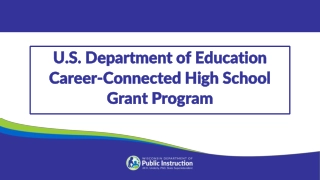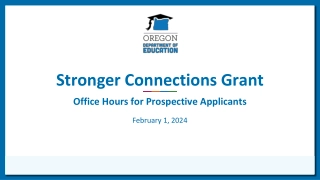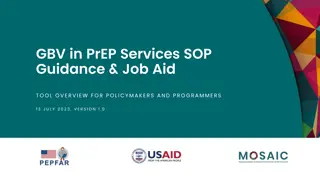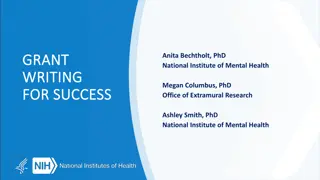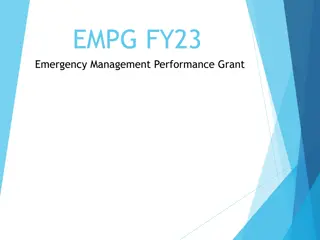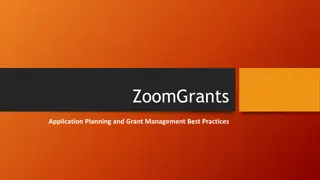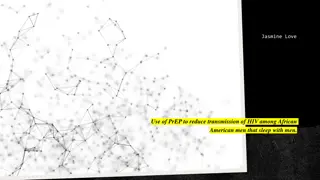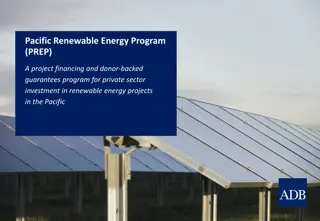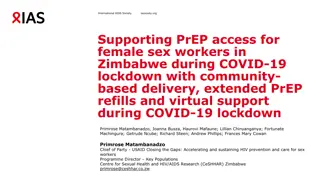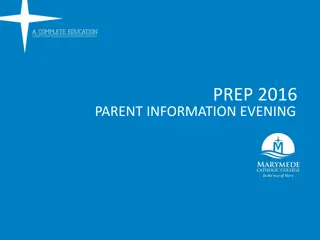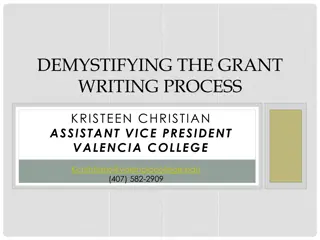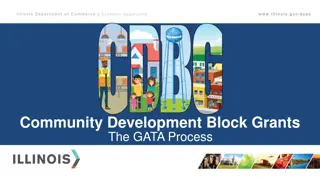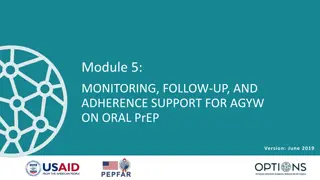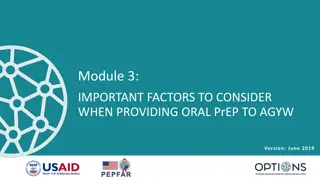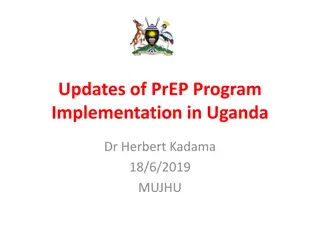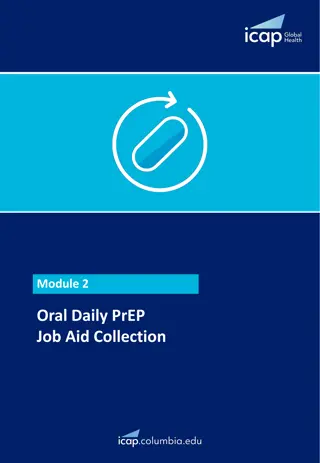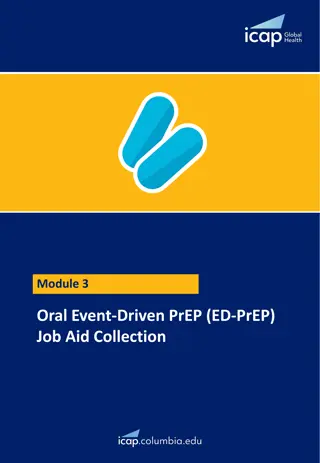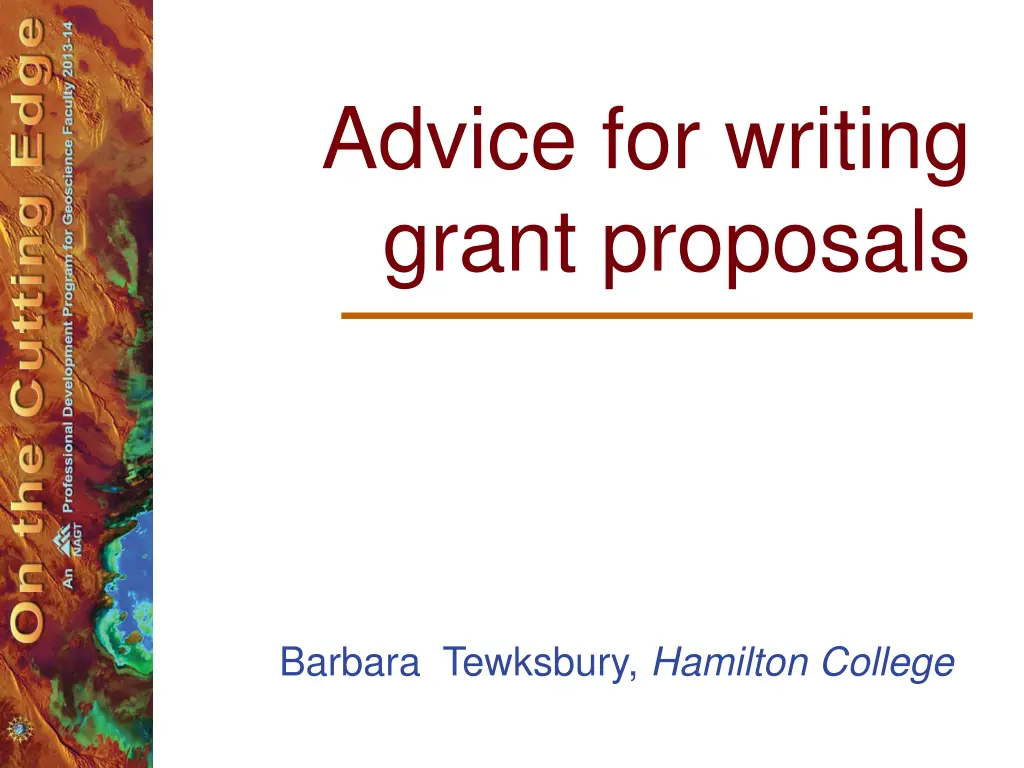
Effective Grant Proposal Writing Tips for Success
Discover valuable advice on writing successful grant proposals from Barbara Tewksbury of Hamilton College. Learn about gaining perspective, creating a strong timeline, understanding the proposed work, and presenting your proposal effectively.
Uploaded on | 0 Views
Download Presentation

Please find below an Image/Link to download the presentation.
The content on the website is provided AS IS for your information and personal use only. It may not be sold, licensed, or shared on other websites without obtaining consent from the author. If you encounter any issues during the download, it is possible that the publisher has removed the file from their server.
You are allowed to download the files provided on this website for personal or commercial use, subject to the condition that they are used lawfully. All files are the property of their respective owners.
The content on the website is provided AS IS for your information and personal use only. It may not be sold, licensed, or shared on other websites without obtaining consent from the author.
E N D
Presentation Transcript
Advice for writing grant proposals Barbara Tewksbury, Hamilton College
Getting perspective (general) Ask colleagues who have had successful grant proposals if you can read several of their proposals (and the reviews, if they are willing) Volunteer to serve on review panels (mail reviews are OK, but you see more proposals on a panel)
Getting perspective (specific) Know what has been funded previously by the particular program Read the Project Summaries/Abstracts, which should be publically available on line. Talk with the program officer (it s his/her job!) but make sure you have your ducks in a line and have specific questions that the PO can legitimately answer
The timeline Competitive proposals are not written over night They go through multiple rewrites with feedback from colleagues Working with collaborators to develop a proposal takes even more time (our last Cutting Edge Grant was in ver. 27 at the time of submission ..) University grants offices have deadlines well in advance of the actual proposal deadline
The proposed work Do your homework What have others done? How does what you propose differ from/improve on what others have done? Is the topic appropriate for the RFP? Is the proposed work novel/compelling but not totally bleeding edge? Consider getting some preliminary results, which can strengthen a proposal
The proposal itself A reviewer with lots of proposals to rank will be looking for obvious ways to eliminate a proposal Don t give a reviewer a reason to drop your proposal to the bottom of the pile
The proposal itself Write for your audience A reviewer who can t understand your proposal and its significance will not rank your proposal highly Will the reviewers be experts in your subspecialty? in the geosciences generally? not in the geosciences? Write accordingly.
The proposal itself An early hook is critical Put the main message up front and avoid a throat-clearing or vacuous introduction If a reviewer doesn t know what you want to do and why by the end of the first paragraph or so, it s too late. By the end of the first couple paragraphs, you want a reviewer to say, Why didn t I think of that???
The proposal itself Address all RFP objectives and review criteria; use section heads and subheads to make it obvious to reviewers that you have done so Use the language of the RFP NSF Broader Impactscan t be tossed off look at a number of proposals for ideas
The proposal itself Don t convey the impression that you think you are so important that you can ignore the rules Adhere strictly to page limits, font size, margins, required sections
The proposal itself Don t give the impression that you are sloppy, careless, or poorly organized Write, rewrite, have others read your drafts, and rewrite again and again until it is as perfect as you can make it message, organization, grammar, spelling, formatting
Budget Know what items are fundable by the program and what are not Make sure that the budget is reasonable, including benefits and overhead Get advice from colleagues with grant track record
Budget Matching funds strengthen a proposal (and may be required) Think ahead to what you would do if the granting agency comes back with an offer to fund you at X% of your request
If you are unsuccessful Ask for the reviews if you are not given them Revise and try again success rate typically increases with resubmission Accept the fact that the next review panel will have different people with different views


